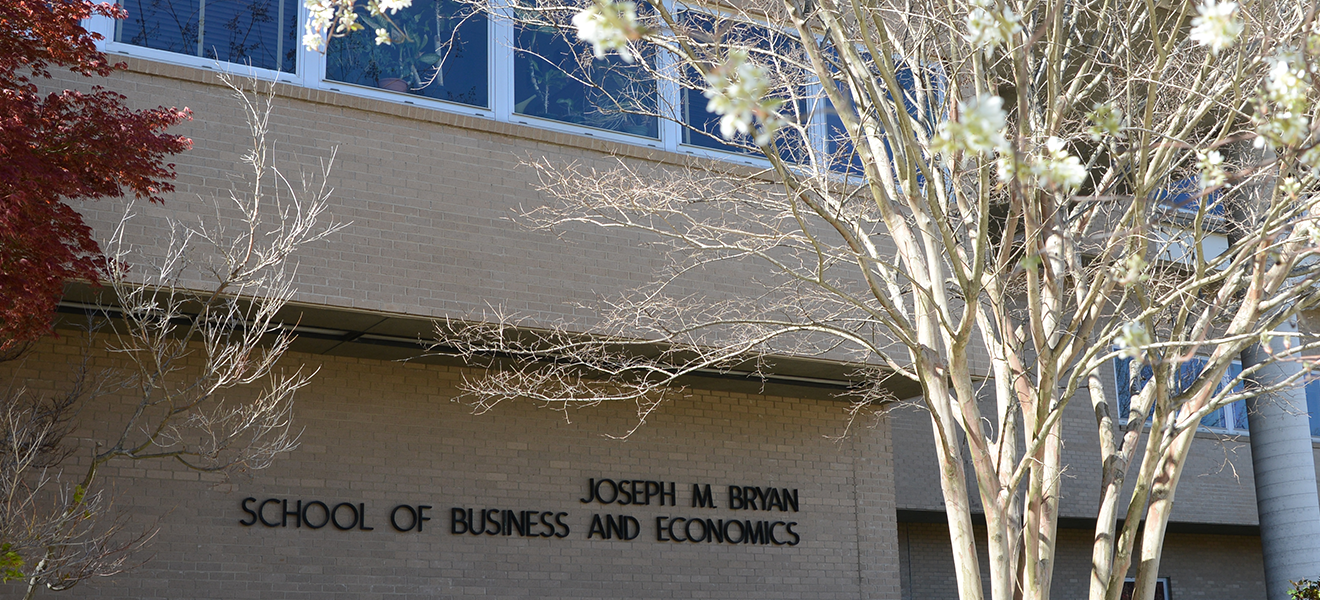Jonathan Norris ’18 PhD finds inspiration in opportunities to engage in research on topics we care about in everyday life. He currently works as a lecturer at the University of Strathclyde in Glasgow, Scotland where his time is split between research, teaching, and administrative duties. Right now, the bulk of his time allocation goes toward research. He teaches fourth-year honors students and supervises undergraduate and master of science (MSc) student dissertations. In addition, he’s helping teach a new MSc course in inequality economics. This year, he’s had opportunities to travel to conferences in Lisbon, Portugal, and Italy.
Pursuing an Academic Life
Norris said he never guessed that his decision to enter the PhD program would provide such global opportunities. “In fact, at the outset my intention was to only pursue the MA in Applied Economics and then go to industry. I never thought much about a PhD and never presumed I was cut out, or even smart enough, for it. In fact, I did receive a number of good offers at the completion of my master’s degree, but the longer I spent at the Bryan School, the more I enjoyed the relative freedom of academic life and the community. So, I applied to the PhD program and to my surprise, was accepted,” he stated.
“My time in the program was a special period. Outside of the stress and anxiety over comps, figuring out how to actually go about research, and remembering I gave up a salary for a PhD stipend — it is the relationships with fellow PhD students and faculty that I remember. Those friendships are often overlooked when thinking about the process of a PhD, but it is these that make the stress and anxiety bearable and time enjoyable (well research too). Dr. Jeremy Bray was gracious enough to take me on as a PhD student just as he came on-board as the department head. He very much gave me the freedom to explore my ideas even as most were quite bad. But through this time I slowly learned how to ask questions in my field, how to identify a research agenda the literature was interested in, and how to execute the work. I certainly could not have done it without him or the support of the rest of my committee, our faculty, and my fellow students who were there every step of the way.”
Researching the Roots of Inequality
Most of his work is focused on the childhood and adolescent roots of inequality. “This is a broad umbrella and has taken me in many different directions. At its heart, my research aims to uncover mechanisms that contribute to inequality and can be targeted with policy interventions.”
He explains, “One example is a recent project, with my co-author Martijn van Hasselt, on untangling the role of maternal involvement for adolescent school-trouble. Another project is a recent grant proposal to examine the cross race efficacy of skills developing during childhood and adolescence on later life economic and social outcomes. The fun part is figuring out how to examine these relationships using data in a believable way.”
Making the Move Abroad
Norris says that being able to work with data and bring statistical toolsets to bear on problems interests him and provides an opportunity to find a niche, and hopefully produce something of value.
“I interviewed with Strathclyde at the American Economic Association meetings and then was invited to visit. I received the offer and then moved here in August. My time here has been great! The highlands are the best part of the UK and well worth visiting. In general, living in the UK isn’t so different from living in the U.S.”
Norris feels that the rigorous training he received from this PhD program helped him develop technical skills. “Also, the mentorship on learning the art of good research questions has been vital. Finally, the relationships with fellow students, without whom the lost income and tiresome work would never have been tolerable.”




